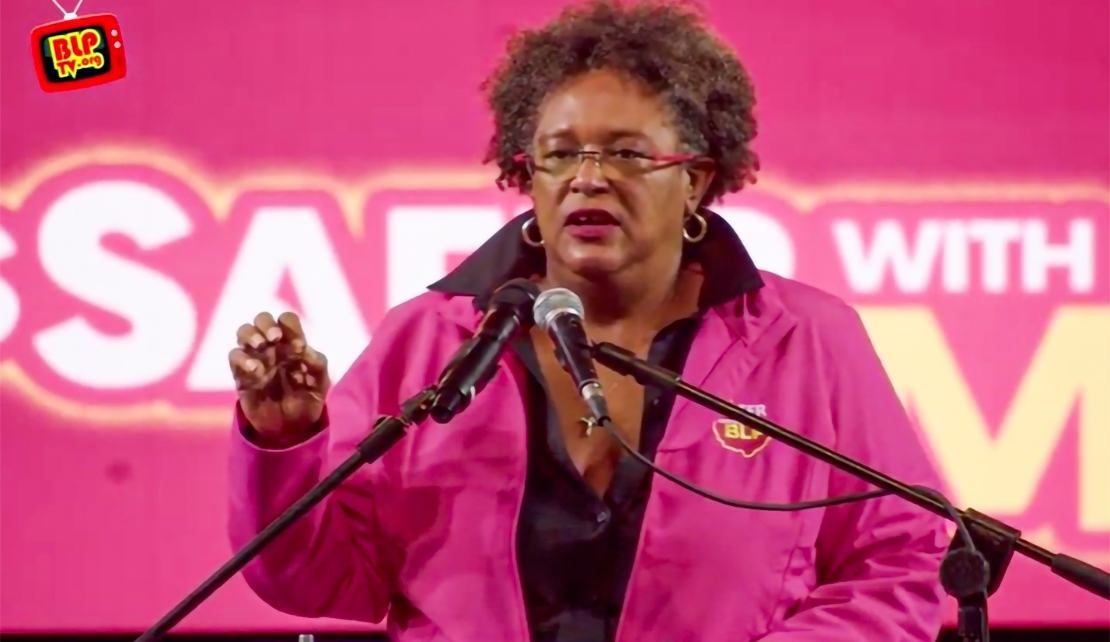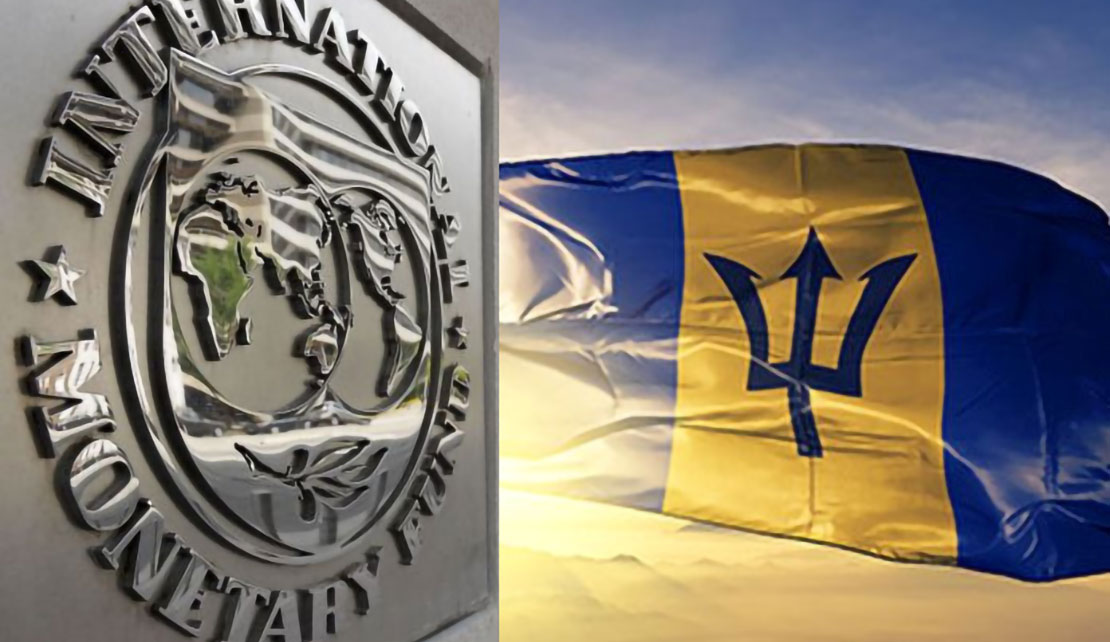BARBADOS | Economic Review: Mottley’s Policy Performance and Outlook (Part 2)

BRIDGETOWN Barbados - January 2022 - This is a follow up piece to the Policy Performance and Outlook (Part 1) by Barbados Underground published last week. Topics coming from the political opposition and others critical of government policy on the campaign trail so far have not clearly articulated economic alternatives and to give hope to an electorate definitely suffering from economic, social fatigue.
 With just over a week ago, is it too much to ask to have a serious conversation about the state of the economy and the viable alternatives that may exist? Ask the Blogmaster.
With just over a week ago, is it too much to ask to have a serious conversation about the state of the economy and the viable alternatives that may exist? Ask the Blogmaster.
Tax Reforms
The intended purpose of the 2019 tax reforms was to shift taxation from off of work and income and more towards transactions and wealth in these measures the administration implemented:
- 0% income taxes on the first 25,000.
- Introduced a Compensatory Income Credit for people earning above 25’000 but below 3500. You can see that here.
- Reinstated the reverse tax credit of $1300 which the Stuart Administration stopped paying between 2016 and 2018,
- Expanded it to include everyone earning less than 25,000. You can see that here.
- Increase Land Tax on properties valued above 450,000 from 0.45% to 0.7%.
- Changed Road tax to a pay-as-you-use tax on fuel.
Paying Arrears

The administration issued the ‘S’ series bonds in late 2018 to pay off the 1.9 billion dollars in arrears owed to individuals and businesses throughout Barbados over a four year period. As of the last update in November 2021 by Ryan Straughn, the Government had paid $1.4 billion to these people and entities leaving $500 million to be paid by September 2022.
These included people whom the state owed for goods provided, services rendered, UWI for educating Barbadian Students, $250 million in NIS payments for Civil Servants, (I could be wrong but I believe fellow blogger Northern Observer was one of the people owed).
Additionally, I noticed that the administration went to parliament recently to pass the Debt Settlement Arrears Act 2021 which sought to clear an additional $300 million in arrears for land that the State acquired over the years and did not pay people whose lands were acquired.
This is in addition to people who successfully sued the government or reached a settlement with the State in the past. This is being done by issuing J series bonds to be paid off in four years.
Strangely enough this bill stirred some controversy over wording, but the Act clearly states on page 4 that the purpose is to pay off people to whom the government owed money for land compulsorily Acquired before September 2018. In other words, this only applies to people who were owed money for land before this Administration. Read the act here.
We should have used the passage of this Act to examine the regrettable instances over the last 40 years in which The state has acquired peoples land without compensation, some going 30 years without a cent. This has happened across various administrations.

I think paying these people over a four year period using the J series bonds is fair, given that you cannot pay the $300 million all at once because of fiscal constraints, and the state should not pick and choose who it will pay and when.
Monthly payments over a four year period is one of the best options, given that a number of these people have not been given a cent for more than two decades with some of them already having passed away.
Another option however, would have been to get a separate loan from somewhere to pay these Barbadians.
Arrival of Covid
Upon the arrival of Covid-19 the Barbados economy contracted by 17.5%, due to a 95% fall in tourist arrivals, Government revenue fell by $600 million during the first year as well and has only now begun to recover.
What was the response? After the tax reforms of 2019 and before the pandemic hit, the Mottley administration already declared that it will not be implementing any new taxes or increasing any existing ones, up until this point, they have kept this pledge.
 Therefore upon the arrival of Covid the government let the $600 million loss in tax revenue go without responding with any new revenue measures. Was this the right call? If you go by most economic theories, yes.
Therefore upon the arrival of Covid the government let the $600 million loss in tax revenue go without responding with any new revenue measures. Was this the right call? If you go by most economic theories, yes.
According to this Australian Economist. Expansionary fiscal policy is one of the ways that a country with a fixed exchange rate can respond to a deep recession. Luckily, when the pandemic hit the government was already running a 6% primary surplus in order to pay off arrears.
Therefore, the government was in a position to renegotiate the EFF with the IMF for a 1% primary deficit. This allowed the government to go without imposing any new taxes, avoid deep spending cuts and respond to households and small businesses. The Government ended up running an overall deficit of 4.5% because it continued to pay back arrears (S series and tax refunds).
The Government came together with companies and people earning over $50,000 a year to set up the Adopt-a-Family programme to give $600 monthly to the most vulnerable households, 5000 of whom accessed this.
The Government also reprofiled the loan payments of Micro Business Client of the Trust Loan Fund and Fund Access. Banks announced a six-month moratorium on loan repayments. During the 2021 lockdown, over 5000 micro and small businesses were given $750 each week of the lockdown. This also included vendors and Taxi drivers.

Some Capital works projects like the Speightstown Flood Mitigation Project; Constitution River Flood Mitigation Project and Fairchild Street Rehabilitation Project; speeding up of the Roadworks and Water Augmentation Projects and project to renovate derelict government buildings. The government increased Health expenditure by hiring more health care officers and constructing a hospital in St Lucy in one month.
My only criticism is that the Capital Works programme could have been expanded with more public/private partnerships.
Challenges and Proposals Ahead
The main Challenges that lie ahead include; tackling the population crisis; dealing with the OECD imposed global minimum tax rate; lack of Innovation in this economy and forming new trade relationships.
Population Crisis
Barbados' population growth rate has been declining since 2010 and reached only 0.1%. In 10-12 years Barbados’ population will start to shrink if something is not done soon to stem this.
The Mia Mottley administration put together a population commission to look into this. I have heard that the commission’s work is done, if that is true, I believe it’s findings should be made public straight away, given that it has serious implications for the NIS pensions.
You would recall Ronald Jones urging Barbadians to “have more babies” and articles like this from Harry Russle in 2012 acknowledged the problem. However, with time running out, telling people to have more children is not and will never be a serious public policy response to this crisis.
Even if the birth rate in Barbados was to tick up slightly this year, it would still not go far enough to solve the problem. Even though it is often a controversial topic (check the USA), immigration reform and policies aimed at getting the diaspora to return, has to be front and center going forward. If this is not done, people expecting a pension in 25 years time may get none.

Innovation
That leads me to the next point. In reforming the immigration process, Barbados has to determine the characteristics of young people, including those in the diaspora who want to come here, or return.
Emphasis should be placed on encouraging those who can innovate, bring new skills not available in abundance in the country and those who already offer goods and services outside of the island. This can speed up economic diversification.
Havard professor Ricardo Haussman has done great work on economic diversification and how it relates to know-how, you can listen to his lectures here and here. Improvements in innovation will also come with comprehensive education reform. Work has already started with the education reform unit, but that needs to be given time to bear fruit.
Global Minimum Tax rate
 The final nail in the coffin has come, we now have to live with the end of what we once called the “international Business sector”. The OECD announced the imposition of a %15 global minimum tax rate for Multinational Entities.
The final nail in the coffin has come, we now have to live with the end of what we once called the “international Business sector”. The OECD announced the imposition of a %15 global minimum tax rate for Multinational Entities.
In simple terms, this means that if an international business company pays %5 corporate tax in Barbados it will have to pay an additional %10 tax in its jurisdiction of origin. This now means that tax competition is effectively over. You can read more here.
In December of 2018 local companies benefited from a reduction in Corporations taxes, not because the government wanted to stimulate the economy but because it was trying to prevent a collapse of the International Business sector.
In 2017 the Stuart Administration made a commitment to the OECD that there will be no difference between international business and domestic business, leaving whoever won the 2018 election a few months to implement it.
To be fair, the Stuart administration committed to this to get the OECD off the country’s back, without thinking through the implications. Now with the global minimum tax rate, the country has to compete for global business on ease of doing business, human capital. and a supportive environment (eg. Central banks regulatory sandbox for digital currency). This Global Minimum tax rate will be fully implemented by 2023 and Barbados will have to transform significantly before this takes effect, (good luck to those responsible).
Trade Policy
Barbados will need to change and expand its Trade and foreing policy to grow the economy. The country has to continue the work started in Africa but must also seek to stand out in becoming the place from which high end goods and services are provided to most of Latin America and the Caribbean.
![President Uhuru Kenyatta and Barbados Prime Minister Mia Amor Mottley. [Source/Uhuru Kenyatta]](/images/2018/UhuruKenyatta-MiaMottley.jpg)
Fiscal Policy
The good news is that the debt to GDP ratio will almost certainly fall this year barring some calamitous event. That is because the GDP portion of the ratio will increase due to higher economic growth this year. This growth is just a reversal of losses experienced when the economy contracted by 17.5 percent in 2020.
This fall in the debt to GDP ratio in 2022 should not be mistaken as Barbados being on some path to glory however, there is still a long way to go and a number of challenges to come as I mentioned before.
The next administration should focus on infrastructure spending while avoiding the mistake of increasing current spending. Let the growth this year take care of most of the recovery in Government revenue which has already begun. If you manage not to mess this up, it can go some way in helping you to face the challenges ahead. In a small open economy. Sound fiscal policy helps to anchor all stability.
